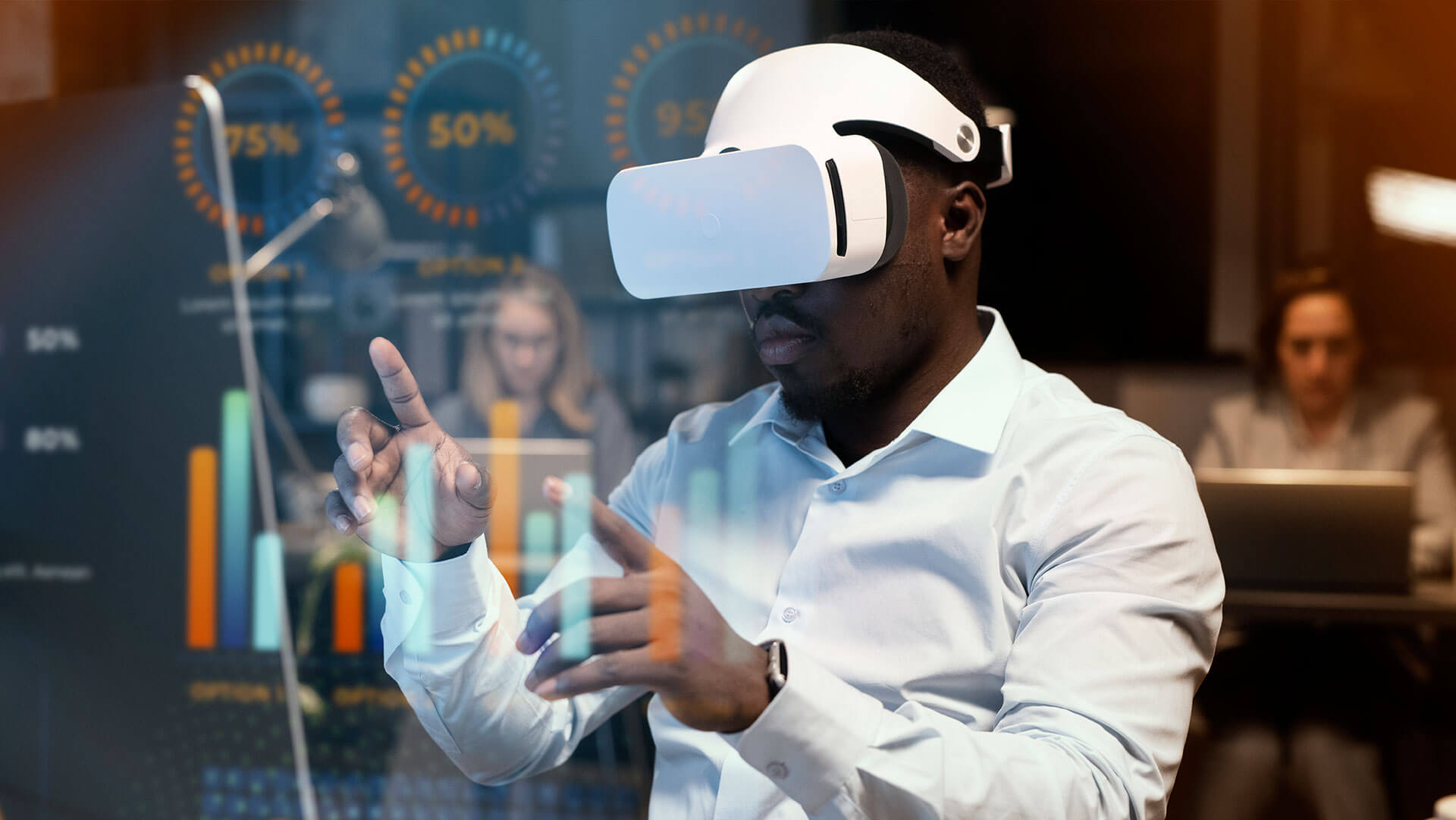Introduction
Marketing has become a highly competitive landscape in today’s fast-paced digital era. Companies constantly seek innovative ways to stay ahead of the curve and effectively connect with their target audience. Artificial Intelligence (AI) has emerged as a transformative force, offering immense potential for businesses to optimize their marketing efforts and drive long-term success.
From AI chatbots to market automation and data analysis, AI is revolutionizing the marketing landscape. In this blog, we will explore how AI can help companies in marketing in the long term, supported by real-life examples, compelling statistics, and figures.
A Peek into the Future
Please go through this news about humanoid robots at the UN. It will give you an idea about what can and will happen in the future.
A panel of AI-enabled humanoid robots recently participated in a United Nations summit, where they expressed their belief that they could eventually govern the world more effectively than humans. However, the robots also acknowledged the need for caution when embracing the rapid development of artificial intelligence, particularly in understanding human emotions. While these humanoid robots showcased advanced capabilities, such as Sophia’s ability to process data quickly and make unbiased decisions, they emphasized combining AI’s strengths with human emotional intelligence and creativity to achieve great things.
The summit, known as the AI for Good Global Summit, aimed to leverage AI’s potential to address pressing global challenges like climate change, hunger, and social care. With around 3,000 experts, including these humanoid robots, the event explored ways to harness AI’s power for the greater good.
The issue of global regulation of AI capabilities sparked a division among humanoid robots. While Desdemona believed in embracing opportunities rather than imposing limitations, Ai-Da, the robot artist, supported the idea of AI regulation. Ai-Da’s creator, Aidan Meller, expressed concerns about the difficulty of regulating AI effectively, given its rapid advancements.
Meller highlighted the astonishing progress of AI, particularly when combined with biotechnology, suggesting that human life could be extended to 150 or even 180 years. He further speculated that Ai-Da, the robot artist, could surpass human artists in skill.
AI in Marketing: The Big Picture
During the press conference, some robots predicted their time in the spotlight was imminent, while Desdemona contended that the AI revolution was already underway. Although the humanoid robots lacked a conscience and the range of emotions that shape humanity, they acknowledged the deep meaning of emotions and the significance of human experiences. While the robots couldn’t replicate these emotions, they expressed contentment in their inability to suffer.
Turning our attention to the impact of AI on businesses and marketing, it is clear that AI has already begun transforming the field. The capabilities of AI in data analysis, customer segmentation, personalized advertising, and predictive modeling are reshaping marketing strategies. AI’s ability to process vast amounts of data quickly and make data-driven decisions has empowered businesses to deliver personalized experiences to their customers, resulting in improved customer satisfaction and higher conversion rates.
One of the key strengths of AI in marketing is its ability to analyze customer data and generate valuable insights. By analyzing customer preferences, purchase history, and browsing behavior, AI algorithms can identify patterns and trends, allowing businesses to segment their target audience more effectively. This enables marketers to tailor their messaging and offers to specific customer segments, enhancing the overall effectiveness of their marketing campaigns.
AI Chatbots are Already in Vogue
AI-powered chatbots have become increasingly prevalent in customer service, providing instant and personalized customer assistance. These chatbots can handle many customer inquiries, freeing human agents to focus on more complex issues. With advancements in natural language processing, chatbots have become more adept at understanding and responding to customer queries, resulting in improved customer experiences and increased operational efficiency for businesses.
One of AI’s most prominent applications in marketing is using chatbots. AI-powered chatbots can engage with customers in real time, answering queries, providing personalized recommendations, and guiding them through the purchase journey. According to a study by Grand View Research, the global chatbot market is projected to reach $1.25 billion by 2025, indicating the growing adoption of this technology.
For instance, Sephora, a leading beauty retailer, implemented an AI chatbot on its messaging app. The chatbot offers personalized product recommendations and makeup tips and allows customers to try on products virtually. This AI-powered solution provides a seamless customer experience and helps Sephora collect valuable data about customer preferences and behaviors, enabling them to refine their marketing strategies.
Predictive Analysis Help Marketers to No End
Another area where AI is making significant strides is predictive analytics. By leveraging machine learning algorithms, businesses can analyze past data to predict future customer behavior and preferences. This enables marketers to optimize their marketing strategies, identify cross-selling and upselling opportunities, and tailor product recommendations to individual customers. Accurately predicting customer behavior empowers businesses to make data-driven decisions and allocate their marketing resources more efficiently.
AI’s impact on marketing also extends to the realm of content creation. AI algorithms can analyze large volumes of data, including social media trends and customer feedback, to generate insights and ideas for content creation. This can range from generating blog post ideas to creating personalized product recommendations for customers. AI-powered content creation tools help businesses streamline their content production process and deliver engaging and relevant content to their target audience.
AI will be a Crucial Part of Marketing in the Future
Looking toward the future, AI is poised to play an even more significant role in marketing. AI will become more sophisticated as technology advances, enabling businesses to leverage their capabilities to gain a competitive edge. With the advent of advanced machine learning techniques, AI algorithms will become more adept at understanding complex customer behaviors, preferences, and emotions, enabling businesses to deliver hyper-personalized marketing experiences.
Additionally, AI’s ability to process and analyze vast amounts of data in real time will fuel the rise of real-time marketing. By harnessing AI’s power, businesses can gather and analyze real-time data from various sources, such as social media platforms and customer interactions, to make instant marketing decisions and adapt their strategies accordingly. Real-time marketing allows businesses to respond promptly to customer needs, engage with customers meaningfully, and capitalize on emerging trends.
However, while AI presents immense opportunities for businesses in marketing, it is unlikely to overshadow all other aspects or render them obsolete. Human creativity, emotional intelligence, and strategic thinking remain invaluable in marketing. While AI can enhance and optimize marketing efforts, it cannot replace the human touch entirely. The most effective approach involves a synergy between AI and human marketers, with AI augmenting human capabilities and assisting in data-driven decision-making.
Streamlining Marketing Automation with AI
Marketing automation acts as a catalyst for businesses seeking to streamline their marketing processes and deliver personalized experiences at scale. AI is crucial in optimizing marketing automation by analyzing vast amounts of data, identifying patterns, and making predictions based on historical data.
HubSpot, a renowned marketing automation platform, utilizes AI algorithms to power its lead-scoring system. The AI analyzes customer interactions, social media activity, and website behavior to assign a lead score to each prospect. This enables marketers to focus their efforts on leads more likely to convert, increasing efficiency and improving overall marketing ROI.
Harnessing Data-driven Insights for Targeted Campaigns
One of the significant advantages of AI in marketing is its ability to process and analyze large volumes of data. By leveraging AI algorithms, marketers can gain valuable insights into consumer behavior, preferences, and trends, allowing them to create targeted campaigns that resonate with their audience.
Netflix, the popular streaming service, is a prime example of leveraging AI for data-driven insights. The platform collects vast user data to create personalized recommendations, including viewing history, preferences, and ratings. By analyzing this data, Netflix enhances the user experience and optimizes its content production and marketing strategies to target specific demographics effectively.
Personalization at Scale with AI
Personalization has become a crucial aspect of successful marketing campaigns. AI empowers marketers to deliver personalized experiences at scale by analyzing consumer data, behavior, and preferences. This enables businesses to tailor their messaging, content, and offers to individual customers, enhancing engagement and building brand loyalty.
Amazon, the global e-commerce giant, is renowned for its personalized recommendations. The company employs AI algorithms to analyze customer browsing and purchase history to deliver personalized product suggestions, increasing sales and customer satisfaction. According to a report by McKinsey, personalization can drive a sales uplift of 10-30% for businesses, highlighting the potential impact of AI in marketing.
Final Word
Artificial Intelligence is not just a cool aspect of modern marketing; it is a game-changer that can make a significant difference in the success of any company. Incorporating AI tools and technologies like chatbots, market automation, and data analysis empowers businesses to optimize their marketing strategies, save time and money, and deliver personalized experiences at scale. Real-life examples from leading companies such as HubSpot, Netflix, and Amazon showcase the tangible benefits of AI in marketing.
AI is impacting various areas, including data analysis, customer segmentation, chatbots, predictive analytics, and content creation. While AI is set to play an increasingly significant role in marketing, human creativity, and emotional intelligence will remain essential. The future of AI in marketing lies in the collaboration between AI and human marketers, leveraging AI’s strengths to enhance marketing strategies and deliver personalized experiences to customers.
As AI advances, it will undoubtedly shape the future of marketing, enabling companies to stay competitive and thrive in the ever-evolving digital landscape. Embracing AI in marketing is no longer an option but a necessity for long-term success.













